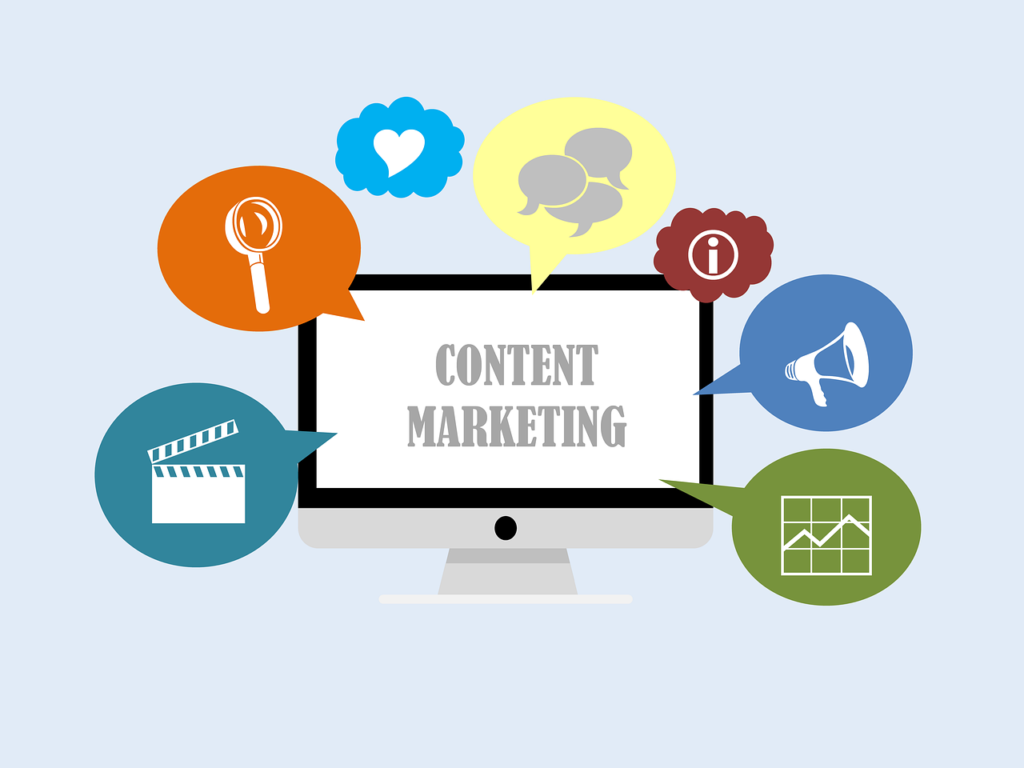In the competitive world of insurance, standing out can be challenging. As an insurance agent, you need innovative marketing strategies to attract new clients and retain existing ones. This article explores actionable and creative approaches to marketing that can help you grow your business. Let’s dive into these strategies designed to enhance your visibility, build trust, and drive sales.
Understanding Your Target Audience
Defining Your Ideal Client
Before you can effectively market your services, you need to understand who your ideal clients are. Are you targeting young professionals, families, retirees, or business owners?
Each group has unique needs and concerns when it comes to insurance. Define your ideal client by considering demographics such as age, income, location, and lifestyle.
Understanding these factors will help you tailor your marketing efforts to address their specific needs and preferences.
Conducting Market Research
Conducting thorough market research is essential to gain insights into your target audience’s behaviors and preferences. Use surveys, focus groups, and online research to gather data about what your potential clients are looking for in an insurance provider.
This information can guide your marketing strategies and ensure that your efforts resonate with your audience.
Building a Strong Online Presence
Creating a Professional Website
Your website is often the first point of contact between you and potential clients. Ensure that it is professional, user-friendly, and informative.
Include essential information such as your services, contact details, and client testimonials. High-quality images and engaging content can make your website more appealing. Regularly update your blog with articles that address common insurance questions and concerns, positioning yourself as an expert in the field.
Leveraging SEO Techniques
Search engine optimization (SEO) is crucial for increasing your website’s visibility on search engines like Google. Use relevant keywords related to insurance services in your content, meta descriptions, and headers.
Local SEO is also important; ensure your website is optimized for local searches by including your location and service areas. This helps potential clients in your vicinity find you more easily.
Utilizing Social Media Platforms
Social media platforms offer a great way to connect with your audience and promote your services. Create profiles on platforms like Facebook, LinkedIn, and Twitter, and post regularly about topics that interest your audience.
Share tips, industry news, and client success stories. Engaging with your followers through comments and direct messages can build trust and foster relationships.
Engaging Content Marketing
Blogging and Educational Content
Content marketing is a powerful tool for attracting and educating potential clients. Start a blog on your website where you can share valuable information about insurance.
Write articles that answer common questions, explain different types of insurance, and provide tips on choosing the right coverage. Educational content helps establish you as an authority in the industry and builds trust with your audience.
Video Marketing
Video content is highly engaging and can help you connect with your audience on a personal level. Create short videos that explain insurance concepts, share client testimonials, or provide behind-the-scenes looks at your business.
Post these videos on your website, YouTube channel, and social media profiles. Live video sessions, such as Q&A sessions or webinars, can also be very effective in engaging your audience and addressing their concerns in real-time.
Building Relationships and Trust
Hosting Workshops and Seminars
Hosting workshops and seminars is a great way to provide value to your community while showcasing your expertise. Organize events that cover important insurance topics, such as retirement planning, health insurance, or business insurance.
Promote these events through your website, social media, and local advertising. These events not only educate your audience but also give you an opportunity to connect with potential clients in person.
Networking and Referrals
Networking is essential for growing your insurance business. Attend industry events, join local business groups, and participate in community activities.
Building relationships with other professionals can lead to valuable referrals. Encourage satisfied clients to refer their friends and family by offering referral incentives, such as discounts or gift cards.
Leveraging Email Marketing
Creating Engaging Newsletters
Email marketing is a cost-effective way to stay in touch with your clients and keep them informed about your services. Create engaging newsletters that provide valuable content, such as tips for choosing insurance, updates on industry trends, and special offers.
Personalize your emails by addressing recipients by their names and tailoring the content to their interests and needs. Use eye-catching subject lines to increase open rates and include clear calls to action that encourage readers to contact you for more information or to schedule a consultation.
Automated Drip Campaigns
Automated drip campaigns can help nurture leads and keep your services top-of-mind for potential clients. Set up a series of automated emails that are sent out over time to guide prospects through the decision-making process.
For example, you can start with an introductory email that explains the benefits of working with you, followed by emails that provide more detailed information about different types of insurance and testimonials from satisfied clients. This approach ensures consistent communication and helps build trust over time.
Enhancing Customer Experience
Personalized Service
Providing personalized service can set you apart from other insurance agents. Take the time to understand each client’s unique needs and offer tailored solutions. Use a customer relationship management (CRM) system to keep track of client information, such as their policy details, birthdays, and important life events.
This allows you to send personalized messages, such as birthday greetings or reminders when it’s time to renew a policy, showing clients that you care about them as individuals.
Efficient Claims Processing
A smooth and efficient claims process is crucial for client satisfaction. Ensure that your clients can easily file claims and receive prompt responses.
Provide clear instructions and support throughout the process, and keep clients informed about the status of their claims. A positive claims experience can lead to higher client retention and positive word-of-mouth referrals.
Using Technology to Your Advantage
Mobile Apps
Developing a mobile app can provide your clients with convenient access to their policy information, claims filing, and other services. A well-designed app enhances the customer experience by allowing clients to manage their policies on the go.
Include features such as policy documents, payment options, and a customer service chat function to make the app a valuable tool for your clients.
Chatbots and AI
Integrate chatbots and artificial intelligence (AI) on your website to provide instant assistance to visitors. Chatbots can answer common questions, guide users through the insurance selection process, and help with claims filing.
AI can analyze client data to provide personalized recommendations and insights. These technologies improve efficiency and enhance the customer experience by providing quick and accurate support.
Leveraging Testimonials and Reviews
Collecting and Showcasing Testimonials
Client testimonials are powerful tools for building credibility and trust. Ask satisfied clients to provide testimonials that highlight their positive experiences with your services.
Feature these testimonials on your website, social media profiles, and marketing materials. Video testimonials can be particularly impactful, as they allow potential clients to see and hear real people who have benefited from your services.
Encouraging Online Reviews
Online reviews are crucial for your online reputation. Encourage happy clients to leave reviews on platforms like Google, Yelp, and social media. Make it easy for them by providing links to your review pages and guiding them through the process.
Respond to reviews promptly, thanking clients for positive feedback and addressing any concerns raised in negative reviews. A strong online reputation can attract new clients and build trust in your brand.
Hosting Community Events
Sponsoring Local Events
Sponsoring local events is an excellent way to raise your profile in the community and connect with potential clients. Choose events that align with your brand values and target audience, such as health fairs, charity runs, or business expos.
Sponsorship can include financial support, providing promotional materials, or setting up a booth at the event. Your presence at these events demonstrates your commitment to the community and provides opportunities for direct engagement with attendees.
Organizing Informational Sessions
Host informational sessions or webinars on important insurance topics. These events can be held in person or online, making them accessible to a wider audience. Topics might include understanding life insurance, navigating health insurance options, or planning for retirement.
Promote these sessions through your website, social media, and email marketing to attract attendees. Providing valuable information positions you as an expert and builds trust with potential clients.
Innovative Advertising Techniques
Geotargeted Advertising
Geotargeted advertising allows you to reach potential clients in specific locations. Use platforms like Google Ads or Facebook Ads to target ads based on geographic criteria, such as city, ZIP code, or radius around a specific location.
This ensures your ads are seen by people in your service area, increasing the likelihood of attracting local clients.
Retargeting Campaigns
Retargeting campaigns can help you stay in front of potential clients who have already shown interest in your services. Use cookies to track visitors to your website and display ads to them as they browse other sites or social media.
Retargeting keeps your brand top-of-mind and encourages visitors to return to your site and convert into clients.
Embracing Content Marketing
Creating Valuable Guides and E-books
Creating comprehensive guides and e-books on insurance-related topics can provide immense value to your audience and establish you as a thought leader in the industry.
These materials can cover various aspects of insurance, such as “The Ultimate Guide to Choosing the Right Health Insurance” or “Top 10 Tips for Finding Affordable Auto Insurance.” Offer these guides as free downloads on your website in exchange for visitors’ email addresses, helping you build a mailing list for future marketing efforts.
Developing Case Studies
Case studies that showcase your successful interactions with clients can be powerful marketing tools. Detail how you helped a client save money, find the perfect coverage, or navigate a complex claim.
Case studies provide concrete examples of your expertise and effectiveness, building credibility and trust with potential clients. Publish these case studies on your website and share them through your social media channels to reach a broader audience.
Utilizing Paid Advertising
Google Ads and Pay-Per-Click (PPC)
Google Ads and other pay-per-click (PPC) advertising platforms can drive targeted traffic to your website. Use keyword research to identify high-intent search terms related to insurance and bid on those keywords.
Create compelling ad copy that highlights your unique selling propositions and includes a strong call to action. Monitor your campaigns closely and adjust your strategies based on performance data to maximize your return on investment.
Social Media Advertising
Platforms like Facebook, Instagram, and LinkedIn offer robust advertising options that allow you to target specific demographics, interests, and behaviors.
Use these platforms to promote your services, share client testimonials, and highlight special offers. Visual ads, such as videos and carousel ads, tend to perform well on social media. Test different ad formats and messaging to determine what resonates best with your audience.
Partnering with Influencers
Local Influencers
Partnering with local influencers can help you reach a broader audience and build trust within your community. Identify influencers who have a strong following and a good reputation in your area.
Collaborate with them on content that promotes your services, such as sponsored posts, reviews, or interviews. Local influencers can provide authentic endorsements that resonate with their followers, driving traffic to your website and generating leads.
Industry Experts
Collaborate with industry experts to create content that adds value to your audience. This can include guest blog posts, joint webinars, or podcast interviews.
Partnering with experts in related fields, such as financial planners or real estate agents, can also provide mutual benefits and expand your reach. These collaborations position you as a knowledgeable and connected professional, enhancing your credibility.
Implementing Direct Mail Campaigns
Personalized Direct Mail
Despite the digital age, direct mail can still be an effective marketing strategy, especially when personalized. Send personalized letters or postcards to potential clients, highlighting the benefits of your services and including a clear call to action.
Use variable data printing to customize each piece of mail with the recipient’s name and relevant information, increasing the likelihood of a response.
Targeted Mailings
Target your direct mail campaigns to specific segments of your audience based on demographics, location, or previous interactions. For example, send tailored messages to new homeowners, recent retirees, or small business owners.
Targeted mailings can be more effective than general campaigns because they address the specific needs and concerns of each group.
Leveraging Public Relations
Press Releases
Regularly distribute press releases to announce new services, company milestones, or community involvement. Press releases can help you gain media coverage, enhance your reputation, and increase visibility.
Send your press releases to local newspapers, industry publications, and online news outlets. Building relationships with journalists and editors can also help you secure more coverage over time.
Media Appearances
Seek opportunities to appear on local radio shows, podcasts, or TV segments to share your expertise. Media appearances can position you as an authority in the insurance industry and increase your visibility.
Prepare talking points and practice your delivery to ensure you communicate effectively and confidently.
Offering Exceptional Customer Service

24/7 Availability
Offering 24/7 customer support can set you apart from competitors and enhance client satisfaction. Use a combination of live chat, email, and phone support to ensure clients can reach you whenever they need assistance.
Providing round-the-clock service demonstrates your commitment to your clients’ needs and builds trust.
Client Appreciation Programs
Implement client appreciation programs to reward loyal customers and show your gratitude. This can include discounts on policy renewals, referral bonuses, or special events.
Regularly showing appreciation can strengthen client relationships and encourage positive word-of-mouth referrals.
Deep Dive into Social Media Marketing
Creating Engaging Content
Social media content should be engaging and relevant to your audience. Mix up your content types to include articles, infographics, videos, and interactive posts like polls or quizzes.
For example, you can post infographics that explain complex insurance terms in simple language or create short videos answering frequently asked questions about different types of insurance.
Building a Community
Building a community around your brand on social media can foster loyalty and encourage engagement. Start by joining relevant groups on platforms like Facebook and LinkedIn, where you can participate in discussions, answer questions, and share your expertise.
Create your own groups or pages where your clients and prospects can interact, ask questions, and receive timely updates from you.
Running Social Media Campaigns
Social media campaigns can be powerful tools to generate leads and build brand awareness. Consider running campaigns that encourage user-generated content, such as asking clients to share their insurance success stories with a specific hashtag.
Offer incentives like discounts or entry into a giveaway for those who participate. This not only increases engagement but also provides authentic content that showcases your service’s impact.
Enhancing Content Marketing
Deep-Dive Blog Posts
While shorter blog posts are great for regular updates, deep-dive posts on complex insurance topics can attract more traffic and establish your authority. Write comprehensive guides that cover various aspects of insurance policies, such as “The Complete Guide to Choosing Life Insurance” or “Understanding Commercial Property Insurance.”
These posts should be well-researched, include relevant keywords for SEO, and provide in-depth information that helps readers make informed decisions.
Interactive Content
Interactive content like quizzes, calculators, and surveys can engage visitors and provide them with personalized insights. For example, an insurance needs calculator can help users determine how much coverage they need based on their personal information.
These tools not only keep visitors on your site longer but also collect valuable data that can be used for follow-up marketing.
Advanced Email Marketing
Segmented Email Lists
Segmenting your email lists allows you to tailor your messages to specific groups within your audience. For example, you can create segments for new clients, existing clients, and prospects.
Each group can receive customized content that addresses their unique needs and stages in the customer journey. Segmented emails are more relevant and have higher open and conversion rates.
Drip Campaigns for Different Policies
Set up drip campaigns tailored to different types of insurance policies. For example, create a series of emails for health insurance prospects that explain the benefits, different coverage options, and tips for choosing the right plan.
Similarly, have a separate drip campaign for life insurance that covers various aspects from the importance of coverage to the types available and how to apply. Tailored drip campaigns nurture leads over time, providing valuable information and encouraging them to take action.
Advanced Networking and Referrals
Strategic Partnerships
Form strategic partnerships with professionals in related fields, such as real estate agents, financial planners, and mortgage brokers. These professionals can refer their clients to you for insurance needs, and you can do the same for them.
Building a network of trusted partners enhances your credibility and expands your client base.
Hosting Joint Events
Collaborate with your strategic partners to host joint events, such as webinars or local seminars. For example, you can co-host a webinar with a financial planner on “Comprehensive Financial Planning: Integrating Insurance and Investments.”
Joint events provide value to attendees and introduce your services to a broader audience.
Utilizing Advanced Technology
AI and Machine Learning
Leverage AI and machine learning to analyze customer data and predict future needs. These technologies can help you identify patterns and trends, enabling you to offer personalized recommendations and targeted marketing campaigns.
For instance, AI can analyze data to determine which clients are likely to need policy updates or additional coverage and then automate follow-up emails.
CRM Systems
Invest in a robust customer relationship management (CRM) system to manage client interactions, track policy renewals, and automate communications.
A CRM system helps you stay organized and ensures that no client falls through the cracks. Use it to schedule regular follow-ups, send personalized birthday or anniversary messages, and track the success of your marketing campaigns.
Expanding Your Reach with Online Advertising
Advanced PPC Strategies
Implement advanced PPC strategies to maximize your ad spend. Use remarketing to target visitors who have previously interacted with your website but haven’t converted.
Create custom audiences based on demographics, interests, and online behavior to ensure your ads reach the most relevant prospects. Continuously test and optimize your ad copy, keywords, and landing pages to improve performance and ROI.
Display Advertising
Display advertising on relevant websites can increase brand visibility and attract new clients. Use eye-catching banners and compelling messaging that highlights the benefits of your services.
Display ads can be targeted based on user demographics, interests, and browsing behavior, ensuring they reach the right audience.
Developing a Robust Brand Identity

Consistent Messaging
Ensure that all your marketing materials, from your website to social media profiles and email campaigns, have consistent messaging. Your brand voice should reflect your values and resonate with your target audience.
Consistent messaging builds trust and reinforces your brand identity.
Visual Branding
Invest in professional visual branding, including a logo, color scheme, and design elements that reflect your brand’s personality. Use these elements consistently across all platforms to create a cohesive and recognizable brand image.
High-quality visuals enhance your credibility and make your marketing materials more appealing.
Data-Driven Marketing Strategies for Insurance Agents
In today’s digital age, leveraging data to inform your marketing strategies is essential for achieving success and growth in the insurance industry. Data-driven marketing allows you to understand your clients better, personalize your interactions, and make informed decisions that lead to higher conversion rates and customer satisfaction.
Here’s a detailed look at how insurance agents can effectively utilize data to enhance their marketing efforts.
Collecting and Analyzing Customer Data
Customer Relationship Management (CRM) Systems
A CRM system is a powerful tool that helps you collect, organize, and analyze customer data. It stores detailed information about your clients, including their contact details, policy information, interaction history, and preferences.
By analyzing this data, you can gain valuable insights into your clients’ needs and behaviors, which can inform your marketing strategies.
Data Collection Methods
Collect data through various touchpoints such as website forms, social media interactions, email campaigns, and direct client interactions.
Use tools like Google Analytics to track website behavior and gather insights on how visitors interact with your content. This data helps you understand which pages are most popular, how long visitors stay on your site, and what actions they take.
Segmenting Your Audience
Demographic Segmentation
Segment your audience based on demographic factors such as age, gender, income, and location. This allows you to create targeted marketing campaigns that resonate with specific groups.
For instance, younger clients might be more interested in health insurance, while older clients may focus on life insurance and retirement planning.
Behavioral Segmentation
Behavioral segmentation involves categorizing clients based on their actions, such as purchasing history, website activity, and engagement with your communications.
Identify clients who frequently open your emails, visit your website, or request quotes, and target them with personalized offers and relevant content.
Personalizing Marketing Campaigns
Customized Email Marketing
Use the data collected from your CRM to personalize your email marketing campaigns. Send tailored messages that address the specific needs and interests of different client segments.
For example, if a client recently inquired about home insurance, send them an email with detailed information about your home insurance policies, including benefits and special offers.
Personalized Website Content
Implement dynamic website content that changes based on the visitor’s profile and behavior. For instance, show different landing pages or promotional banners to new visitors, returning clients, or those who have previously requested a quote.
Personalized content enhances the user experience and increases the likelihood of conversion.
Predictive Analytics
Identifying Client Needs
Predictive analytics uses historical data and machine learning algorithms to predict future client needs and behaviors. Analyze patterns in your data to identify clients who are likely to need additional coverage or policy updates.
For example, if a client recently bought a new home, they might be interested in home insurance or increased coverage.
Improving Retention Rates
Use predictive analytics to identify clients who might be at risk of not renewing their policies. Look for indicators such as decreased engagement or frequent complaints.
Proactively reach out to these clients with personalized offers, loyalty programs, or enhanced customer service to retain their business.
Optimizing Marketing Efforts
A/B Testing
A/B testing involves comparing two versions of a marketing asset, such as an email, landing page, or advertisement, to see which one performs better.
Use A/B testing to optimize your campaigns by experimenting with different subject lines, call-to-action buttons, images, and messaging. Analyze the results to determine what resonates best with your audience and implement the winning elements in future campaigns.
Real-Time Data Analysis
Real-time data analysis allows you to monitor the performance of your marketing campaigns as they happen.
Use tools like Google Analytics, social media insights, and email marketing dashboards to track key metrics such as click-through rates, conversion rates, and engagement levels. Real-time analysis helps you make quick adjustments to improve campaign performance and achieve better results.
Enhancing Customer Experience

Automated Communication
Automate your communication processes to ensure timely and consistent interactions with your clients. Use automated email sequences to send welcome messages, policy reminders, and follow-ups after key events such as policy renewals or claims.
Automation saves time and ensures that no client is overlooked, enhancing the overall customer experience.
Feedback and Surveys
Regularly collect feedback from your clients through surveys and feedback forms. Use this data to identify areas for improvement and address any concerns.
Analyze feedback trends to understand common pain points and implement changes to enhance your services. Positive feedback can also be used as testimonials to attract new clients.
Leveraging Social Media Analytics
Tracking Engagement
Social media platforms provide valuable data on how your audience engages with your content. Track metrics such as likes, shares, comments, and click-through rates to understand what types of content resonate with your audience.
Use these insights to refine your social media strategy and create content that drives engagement.
Targeted Advertising
Social media platforms offer advanced targeting options for advertising. Use data to create highly targeted ads that reach specific segments of your audience.
For example, target ads to users who have visited your website but have not yet requested a quote. Tailor your ad messaging to address their specific interests and encourage them to take the next step.
Measuring and Reporting Success
Key Performance Indicators (KPIs)
Identify key performance indicators (KPIs) that align with your marketing goals, such as lead generation, conversion rates, customer acquisition cost, and client retention rates.
Regularly track and analyze these KPIs to measure the success of your marketing efforts and identify areas for improvement.
Comprehensive Reporting
Create comprehensive reports that summarize your marketing performance and highlight key insights. Use visualizations such as charts and graphs to make the data easy to understand.
Share these reports with your team to keep everyone informed and aligned on your marketing strategy.
Wrapping it up
Utilizing data-driven marketing strategies is essential for insurance agents to effectively reach and engage clients. By collecting and analyzing customer data, segmenting your audience, and personalizing marketing campaigns, you can create targeted efforts that resonate and drive business growth.
Leveraging tools like predictive analytics, A/B testing, and real-time data analysis ensures your strategies are optimized for success. Continuously monitor and adapt your approach based on data insights to stay competitive and meet your clients’ evolving needs.
Implementing these innovative techniques will help you build stronger relationships, enhance customer satisfaction, and achieve sustained growth in the insurance market.
READ NEXT:
- Essential Content Ideas for Social Media Marketing Success
- Holiday Countdown: 25 Days of Christmas Social Media Ideas
- Choosing the Right Social Media Platforms for Your Business
- Cool and Trendy Social Media Ideas
- Top Social Media Strategies for Realtors






















Comments are closed.